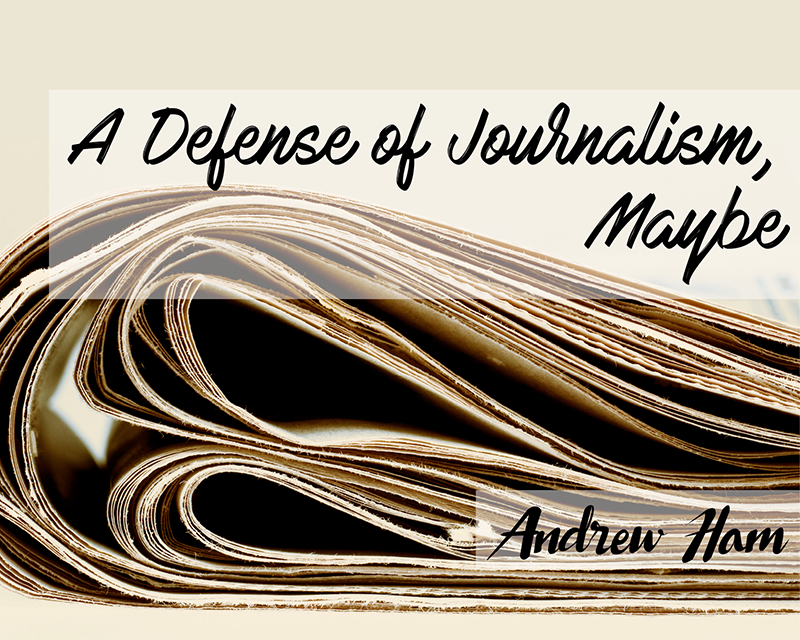Frankly, I am tired of typing the number 2016 in my articles. I imagine this is how writers felt last year, the year before, a century ago; there always seems to be a need to qualify a statement with the year it happened, as if the wind will carry away historians’ pages if we do not. Not that losing some history this year will necessarily be a bad thing for the rest of the world; I am quite content in knowing that the 2016 presidential election never really happened and the American people instead had a nationwide lottery.
I have also noticed that there always seems to be a need for people to engage in criticism without explanation. This year, the subject of such criticism has been the media, as opposed to, you know, the things that are actually making people upset. Even the media criticize themselves, blaming each other for the rise of Trump, the fall of Bernie, the over-the-top scrutiny of Hillary’s illness, the extremely lax scrutiny of Hillary’s emails—stop. There is more than enough blame to go around—but is it really the fault of the media?
A popular belief these days is that unbalanced media coverage is primarily, and fundamentally, the fault of journalism. My belief is that at some point voters will finally realize that they, rather than CNN, filled out the ballots and raised the hands that pushed Donald Trump to the Republican nomination. Unbalanced coverage only resulted when poll results surfaced and news outlets realized who the popular candidates were. In fact, there is nearly a direct correlation between media coverage and poll numbers, as Nate Silver recently found. Could it be that media coverage directs the performance of each candidate? Or could it be, just as plausibly that the performance of each candidate determines his or her media coverage?
Trump figured out early on that to separate himself from the pack he would have to say something outrageous, something Silver found surprisingly does not affect candidates negatively as much. When he did so, the media clearly covered him more than anyone else, but the newsroom isn’t Soviet Russia. To some extent, television news should not be shackled by radically egalitarian concerns. Those strict standards of journalism are only upheld by prestigious newspapers—yes, actual newspapers, the ones people who blame the “media” clearly have not read.
At the beginning of the primary season, the New York Times released comprehensive coverage detailing the potential policies and stances of each Democratic and Republican candidate, and coverage on Trump was minimal compared to Jeb Bush and Hillary Clinton. Attention on him only spiked statistically when he started making his incendiary remarks about Mexicans, Muslims, what is now known as the “morning espresso with Mr. Trump”—and America lapped it up. It gave him power. It gave him attention. And in turn, the media gave it what it wanted. With the most sympathy possible in the phrase, it is too bad what America wanted turned out this way.

